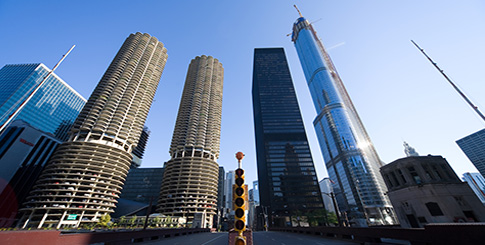The city of Chicago is looking into opening a retail grocery store.
The website of Mayor Brandon Johnson has announced, “Exploring a municipally owned grocery store is part of the Johnson administration’s goal of promoting food equity and accessibility for all Chicagoans.”
It is an attempt to remedy the problem of “food deserts” in poorer sections of the city. “According to estimates from the U.S. Department of Agriculture, 63.5% of residents in West Englewood and 52% of residents in East Garfield Park live more than half a mile from their nearest grocery store,” the mayor’s office noted.

“Historic disinvestment has led to inequitable access to food retail across Chicago, and these existing inequities have been exacerbated as at least six grocery stores closed on the South and West sides over the past two years,” notes the mayor’s announcement. “Not dissimilar from the way a library or the postal service operates, a public option offers economic choice and power to communities,” said Ameya Pawar, senior advisor at Economic Security Project, a nonprofit chosen by the mayoral administration to explore the project.
Critics contend that the reason for this “historic disinvestment” is theft. Target has just announced that it is closing nine stores across four states—in New York’s Harlem, Seattle, Portland, OR, and the San Francisco Bay Area, citing theft as the culprit.
On April 11, Walmart announced that it was closing four Chicago stores, citing “business difficulties”: “collectively our Chicago stores have not been profitable since we opened the first one nearly 17 years ago—these stores lose tens of millions of dollars a year, and their annual losses nearly doubled in just the last five years.”
But Walmart did not specify theft as a reason for the closures, and there is some dispute about the seriousness of this problem.
The New York Post, displaying its usual subtlety, offers an op-ed column entitled, “Commie Chicago to have state-run grocery stores instead of a solution to its crime crisis.
I myself doubt that a municipally operated grocery store would really work in clearing up food deserts. What would be more viable? Possibly a co-op of the sort embraced by the counterculture.
Although most of these have vanished, one co-op, in Brooklyn’s well-to-do but hip Park Slope neighborhood, has been a community centerpiece for decades. (I lived in that neighborhood myself for a couple of years, but I’ve never been a joiner.)
I suspect that grass-roots action and community involvement would have a better chance of eliminating food deserts than an initiative from the top down.



